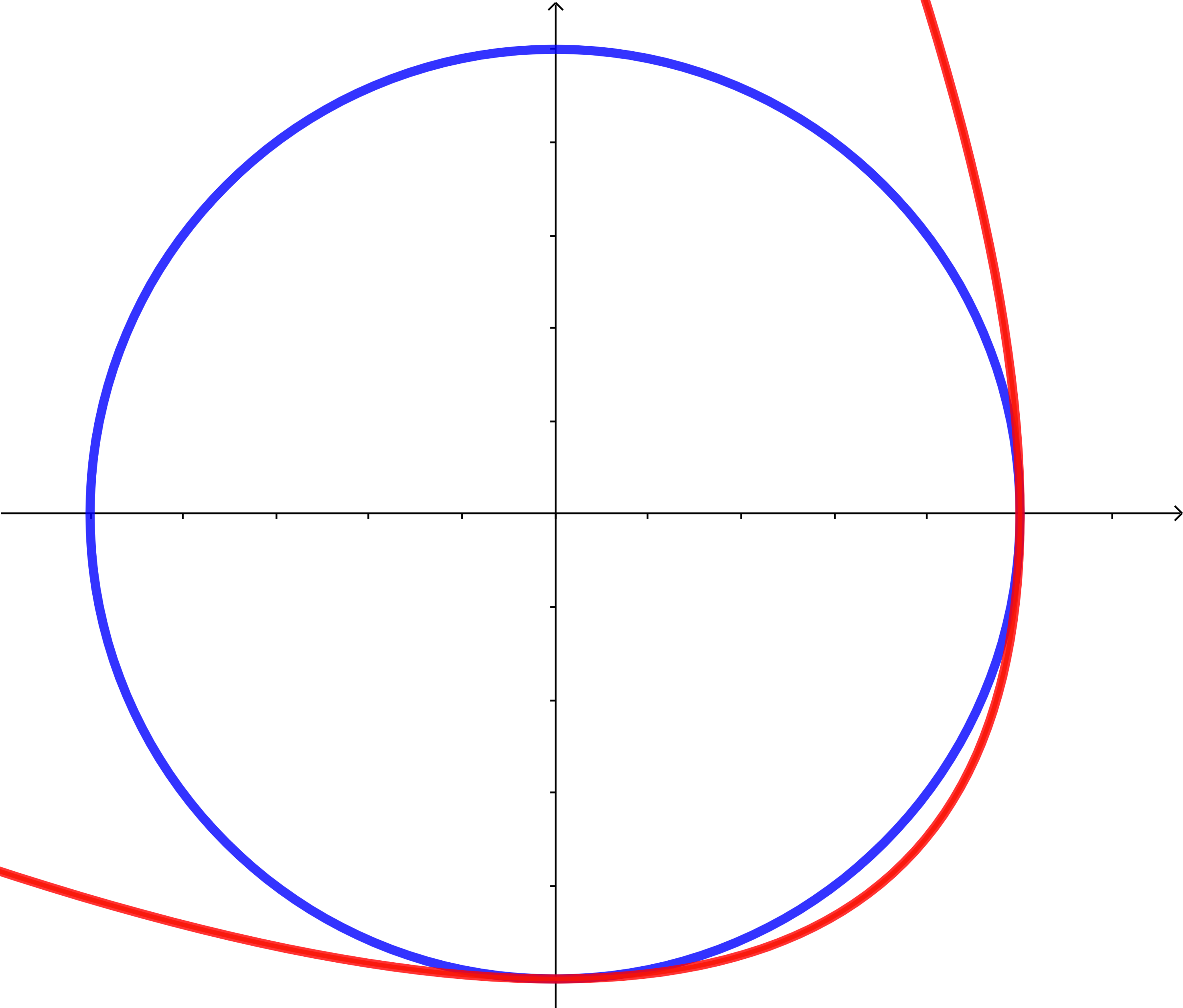It's All About Tangents.

The parabola is tangent to the circle at two points as shown above.
If the area of the region bounded by the above parabola and the circle can be expressed as , where and are coprime positive integers, find .
The answer is 10.
This section requires Javascript.
You are seeing this because something didn't load right. We suggest you, (a) try
refreshing the page, (b) enabling javascript if it is disabled on your browser and,
finally, (c)
loading the
non-javascript version of this page
. We're sorry about the hassle.
To obtain graph below by using rotation equations to find angle θ :
Using the equations of rotation for a rotation about the origin ( 0 , 0 ) :
x = x ′ cos ( θ ) − y ′ sin ( θ )
y = x ′ sin ( θ ) + y ′ cos ( θ )
Replacing x and y in x 2 + 2 x y + y 2 + 2 x − 2 y − 3 = 0 and finding θ we obtain:
x ′ 2 + y ′ 2 + ( x ′ 2 − y ′ 2 ) sin ( 2 θ ) + 2 cos ( 2 θ ) x ′ y ′ + 2 x ′ ( cos ( θ ) − sin ( θ ) ) − 2 y ′ ( sin ( θ ) + cos ( θ ) ) − 3 = 0
Setting x ′ y ′ term to zero we have cos ( 2 θ ) = 0 ⟹ 2 θ = 2 π ⟹ θ = 4 π .
⟹ 2 x ′ 2 − 2 2 y − 3 = 0 ⟹ y ′ = 2 1 ( x ′ 2 − 2 3 ) .
Since any circle is invariant under a rotation about its center we can write: x ′ 2 + y ′ 2 = 1
Solving the system x ′ 2 + y ′ 2 = 1 and y ′ = 2 1 ( x ′ 2 − 2 3 ) :
x ′ 2 = 2 y ′ + 2 3 ⟹ 2 y ′ 2 + 2 2 y ′ + 1 = 0 ⟹ y ′ = − 2 1 ⟹ x ′ = ± 2 1
Using the bottom portion y 2 ( x ) = − 1 − x ′ 2 of the circle and y 1 ( x ) = 2 1 ( x ′ 2 − 2 3 ) . the area A = 2 ∫ 0 2 1 y 2 ( x ) − y 1 ( x ) d x .
Letting x ′ = sin ( θ ) ⟹ d x ′ = cos ( θ ) d θ ⟹
A = 2 ( − 2 1 ∫ 0 4 π ( 1 + cos ( 2 θ ) ) d θ − 2 1 ( 3 x ′ 3 − 2 3 x ′ ) ∣ 0 2 1 )
= 2 ( − 2 1 ( θ + 2 1 sin ( 2 θ ) ) ∣ 0 4 π + 3 2 )
= 6 5 − 4 π = 2 ∗ 3 5 − 2 2 π = a ∗ b c − a a π ⟹ a + b + c = 1 0 .